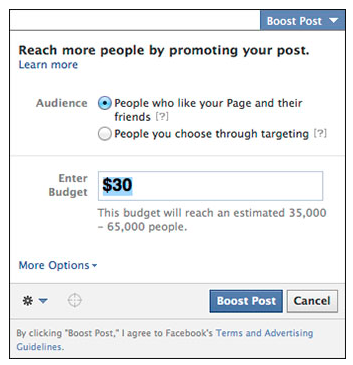Is Paid Social Media The New Paid SEO?
Brands have a new way to pay for external or offsite SEO, a path to influence rankings. It follows the search engines’ terms of service and can lead to the type of links Google says are among the most valuable. Google spokespersons even endorse the principle behind this new paid form of SEO… well, sort of. Can Paid Offsite SEO Be Legal? Yes. Let’s […]
Brands have a new way to pay for external or offsite SEO, a path to influence rankings. It follows the search engines’ terms of service and can lead to the type of links Google says are among the most valuable. Google spokespersons even endorse the principle behind this new paid form of SEO… well, sort of.
Can Paid Offsite SEO Be Legal? Yes.
Let’s begin this exploration with one of the oldest paid SEO channels of all: press releases. Old style press release optimization was straightforward. Write a press release with keyword anchor text links to your website. Place these releases on one or more paid press release services, many of which have SEO packages.

A Screen Shot of PRWeb’s SEO and Social Media Offering.
The press release websites place your release on their site, then distribute it to partner sites and syndicates further via RSS. You can read more about this in Danny Sullivan’s article, How PRWeb Helps Distribute Crap Into Google & News Sites.
That was then. Today, the practice of using press releases for direct anchor text links is questionable at best. This is not a new revelation. Matt Cutts addressed the efficacy of press releases as far back as 2005. And last December, Matt made a similar statement:
Note: I wouldn’t expect links from press release websites to benefit your rankings, however.
This note set off a firestorm of articles and debate, as well as attempts to prove Google does indeed count links from press releases. My own takeaway is that whether or not Google counts a link in a press release does not matter. Based on history, such as the take down of Text Link Ads and private link networks, once the Google Webspam team sets its eyes on a target, it’s going down.
Are press releases, as an SEO tactic, dead? Last month, Barry Schwartz spoke to Google Webmaster Trends Analyst John Mueller about the role of press releases. Barry reported:
Google’s John Mueller did add that there is still great value to using press releases. The goal of the press release is to get the word out to the press about your new service or product. When the press hears about what you have to offer and if/when they decide to write about it on their own sites, those links do not need to be nofollowed. In fact, those stories written editorially are the links that Google values the most.
There is, however, a problem with Mueller’s advice. Journalists and influencers mostly write about companies, services or products under two circumstances. The first is during a notable launch, update or business announcement. In between these infrequent occurrences, your product or service just isn’t newsworthy. The second is when an influencer personally discovers and adopts something that delights them to the point of sharing. Pushing your product or service rarely works because real influencers deal with multiple pitches every day.
This is a problem because search engines like to see a regular inflow of new links over time. They reward recency, frequency and acceleration. To compete for organic search engine referrals, especially for competitive keywords targeted to well-written but poor link targets (like product pages) requires domain-wide authority and inbound links from related onsite pages. Earning a continuous flow of new offsite citations is important. In addition to relevant content, you want to exceed and outpace your competition’s offsite SEO signals.
Which brings us to today’s infatuation with content marketing. Content marketing has been around under many guises since the first websites and blogs. Today, thanks to Penguin and Panda, bona fide citation-worthy content gets more attention than ever, to the point that it’s being called “the new SEO.”
If your business doesn’t have something newsworthy, make citation-worthy content. Use it to earn links, social media mentions, brand awareness, trust, and possibly even desire, trials and sales. Publish great content. Promote it with a press release. People discover your content and link to it or share it on social media, giving you those editorial citations Google values the most.
Except, who looks at press releases today? Most content gets discovered and shared by bloggers and social media mavens.
Paid Social Media
Enter paid promotion on social media.

LinkedIn Began Offering Sponsored Updates Last Month.
If content marketing is the new SEO, then this is the new paid link. Write or create great content, then pay to promote it on social media sites in the hopes that people will click, share, blog and link. While the initial promotion is paid, the sharing and linking becomes curatorial and editorial. It’s like getting bloggers and influencers to launder your paid links.

Paid Social Media Promotion with Facebook
Clearly, social media sites understand the potential here. Pioneered by Facebook with promoted posts and followed by Twitter’s promoted Tweets, LinkedIn just joined the party in July with sponsored updates. Here is LinkedIn’s video explaining sponsored updates.
[youtube]https://youtu.be/FyBL5uB6_d4[/youtube]

A Sponsored Update Example from LinkedIn.
Many of these ads look organic and appear in the news feed, so viewers will incorporate them into their daily reading habits.
Will Paid Social Work?
Clearly, there is a new and growing opportunity here for search engine marketers. Is paid social the holy SEO grail that will propel the highest bidders to the top? To that I offer a resounding “no.” Paid social is just one tool. While it expands visibility, it cannot guarantee action or results.
Make Paid Social Part Of A Multifaceted Inbound Marketing Strategy
Paid social media will work best as part of a well-rounded inbound marketing program including community building, influencer relations and search engine optimization. You still have to follow the basics, like publishing citation-worthy content — something easier said than done. You have to rise above whatever it is you are selling and offer readers a steady stream of value that fits into their work or lives. Why do they use your product or service? What goals and interests do members of your target market share?
Paying for social ads does not mean influencers and bloggers will retweet every story of yours they see. Accompany paid social with a solid influencer relations program. Track citations, follow up with thanks, then let these influencers know about new content you genuinely believe they will find interesting. Use paid social media to sow seeds then cultivate individual relationships.
Because paid social media promotion gets your content posts in front of targeted eyeballs, lots of people who would not otherwise see your message will be exposed to it. So, get your capture and retention plan in place. You can encourage these people to subscribe and capture their emails by offering unique content. Don’t use paid social just for SEO; use it to build your audience.
When it comes to SEO, paid social promotion is just like organic content promotion. High rankings and organic search engine referrals are a second order benefit. Content marketing earns citations. Citations earn authority. Authority leads to visibility in search engines. Visibility leads to referrals for those golden keywords that best lead to conversions.
Think of it as a path. You start with great content first, then use paid social media promotion to reach new people. With great audience capture and retention plus influencer relationship building, you grow a community that provides growing traffic and citations. All this, plus onsite SEO, leads to more and more organic search engine referrals.
Contributing authors are invited to create content for Search Engine Land and are chosen for their expertise and contribution to the search community. Our contributors work under the oversight of the editorial staff and contributions are checked for quality and relevance to our readers. The opinions they express are their own.
Related stories
New on Search Engine Land